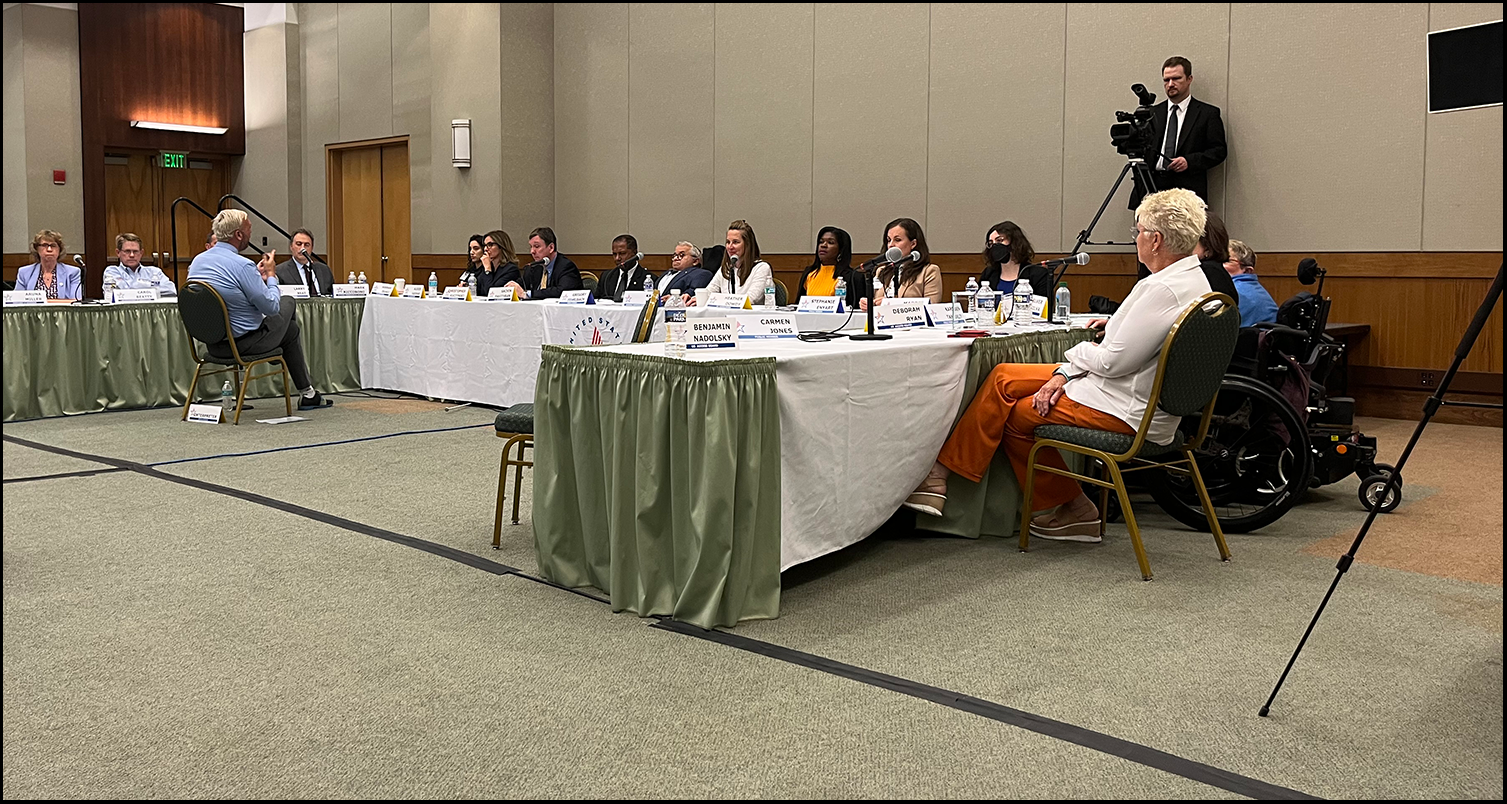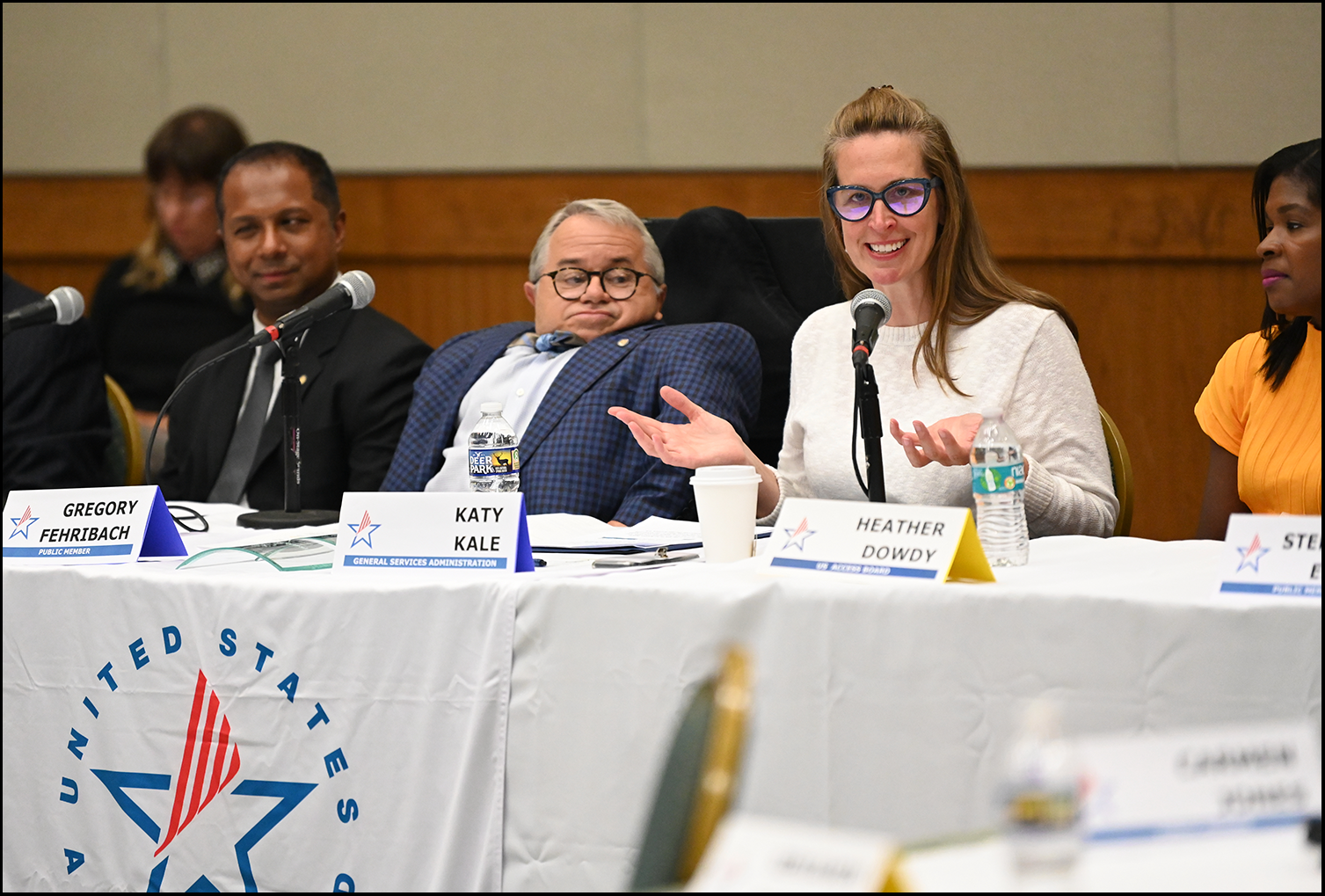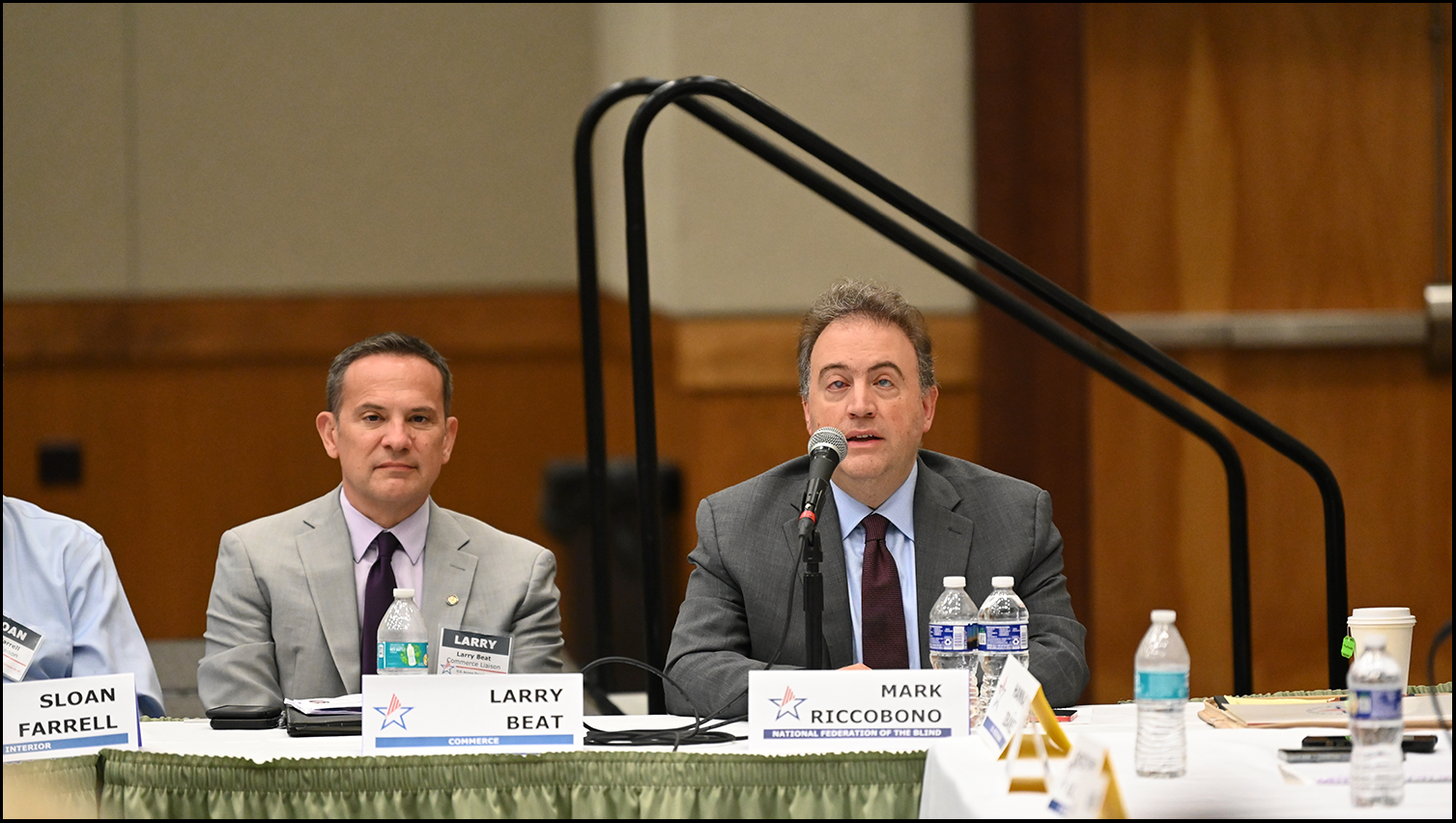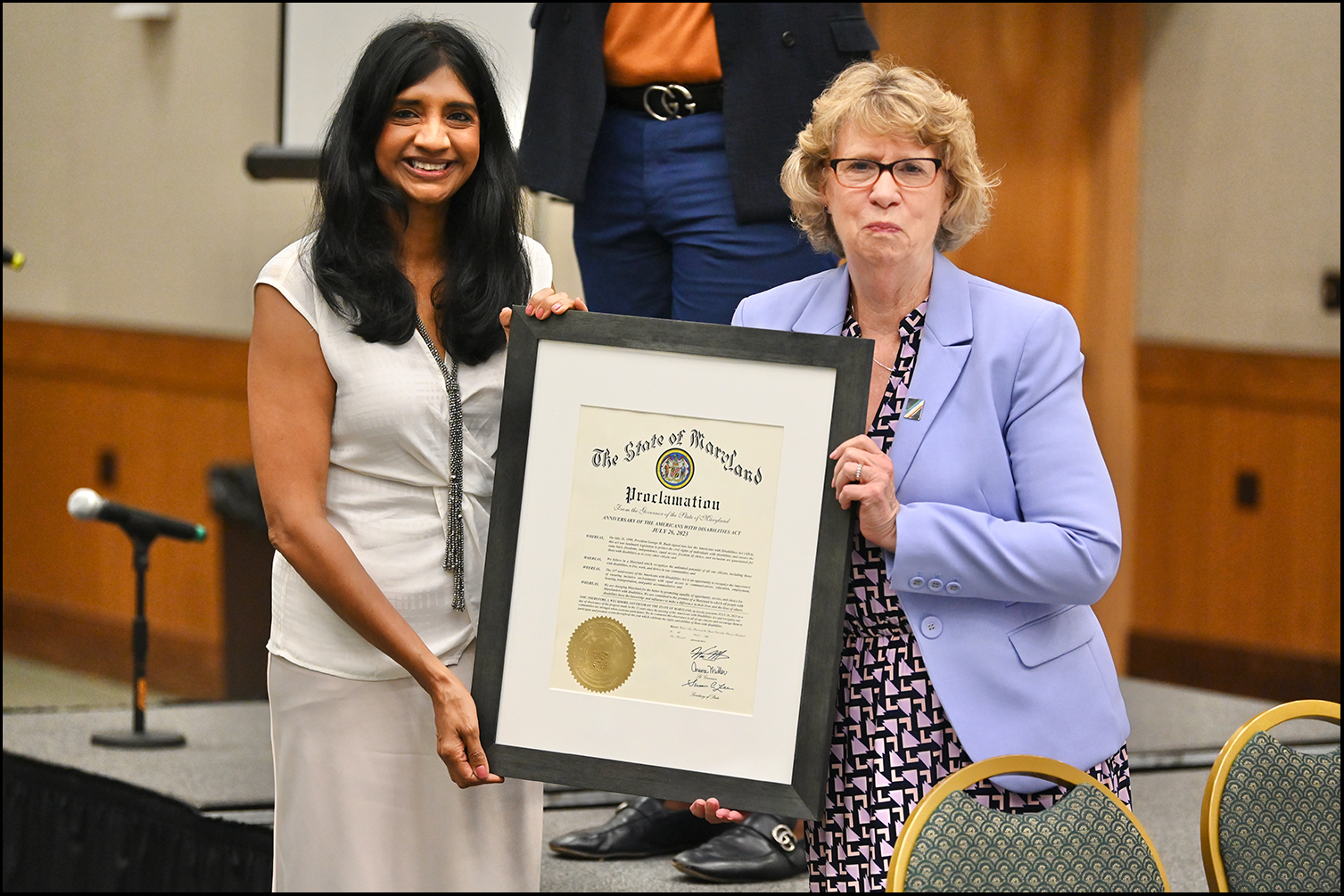U.S. Access Board Holds Town Hall Meeting at National Federation of the Blind in Baltimore
Yesterday, the U.S. Access Board held its 2023 town hall meeting at the national headquarters of the National Federation of the Blind (NFB) in Baltimore, MD. Eleven presidentially appointed Public Board Members were present, as well as Federal Member and Board Vice-Chair Katy Kale, Deputy Administrator at the General Services Administration (GSA), and representatives from U.S. Department of Commerce and Department of Interior.

Board Chair Greg Fehribach opened the town hall and mentioned the Board’s Monday visit to Chesapeake Region Accessible Boating (CRAB) Adaptive Boating Center, a state-of-the-art facility that includes compliance with the Americans with Disabilities Act (ADA) Accessibility Standards, spaces and elements that exceed the ADA Accessibility Standards, and adaptive boarding equipment for guests with disabilities. Fehribach also commemorated the 33rd anniversary of the ADA—the landmark civil rights law prohibiting discrimination on the basis of disability in the private and state and local government sectors.

Board Vice-Chair Kale also celebrated and remarked on the 50th anniversary of the Rehabilitation Act, which included creation of the U.S. Access Board. Congress established the Board to enforce the Architectural Barriers Act (ABA) of 1968—a groundbreaking law that requires buildings and facilities built or leased on behalf of the federal government to be accessible to people with disabilities. As Deputy Administrator of GSA, Kale leads a staff that oversees over 363 million square feet of owned or leased GSA space that includes 8,397 buildings in more than 2,200 communities nationwide and is committed to making federal buildings and facilities fully accessible to all people. Additionally, Kale mentioned GSA’s initiatives on advancing digital accessibility through federal technology, such as GSA’s Office of Government-wide Policy IT Accessibility Program and U.S. Web Design Services.

The town hall also included remarks from Mark Riccobono, President of NFB, who welcomed the Board and discussed NFB’s plans to implement a museum on the blind movement—the first national, cultural institution dedicated to telling the stories and histories of those who are blind or have low vision.

In addition, Maryland Lieutenant Governor Aruna Miller welcomed Board members to Maryland and discussed recent legislation to support opportunities for children with disabilities and efforts to hire more people with disabilities. On behalf of Maryland Governor Wes Moore, she also presented a Maryland proclamation for July 26 as a day of observance of the ADA and the commitment to the promise of a Maryland where all people with disabilities are included in participation in society. Miller presented the printed proclamation to Maryland Department of Disabilities Secretary Carol Beatty who was present at the town hall meeting and available to engage with the public at the reception that followed.
Then, Fehribach opened the floor for members of the public to provide comments, which included a range of concerns on accessibility and barriers with hotel rooms, specifically the height of beds and elements in roll-in showers; transportation in Baltimore; pedestrian facilities, curb ramps, and audible signals; prescription drug container labels; the lack of accessible broadband connection in rural areas; the lack of enforcement of Section 508 and information and communication technology; the lack of data on accessibility; and other topics.
Following the town hall meeting, the Board and members of the public continued conversations on accessible design and disability issues at the networking reception, sponsored by Maryland Department of Disabilities.
A recording of the town hall meeting is available on the Board’s YouTube Channel.

